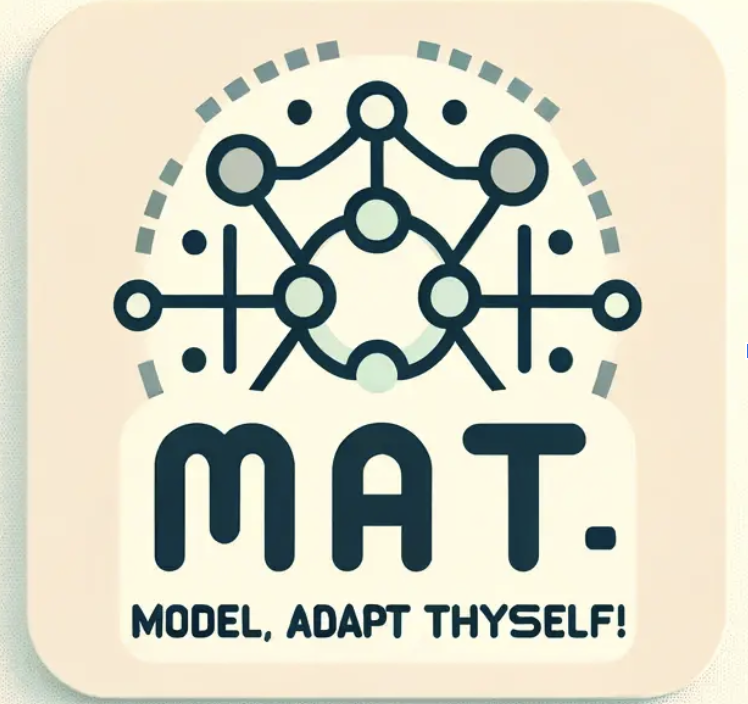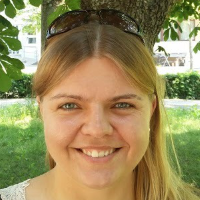1st Workshop on Test-Time Adaptation: Model, Adapt Thyself! (MAT)#
CVPR 2024 workshop

We are hosting a second iteration of this Workshop at ICML 2025! Visit our new workshop website for more information.
Deep learning for vision has made progress across tasks, domains, and settings by scaling to deeper models and longer training, first in AlexNet through VGG to ResNet, and now in the era of foundation models. As models have deepened, the set of applications has widened, and there are now countless kinds of data (personal, scientific, …) and deployments (in clouds, on cars, …). Will all these use cases be solved in the limit of more data, parameters, and computation for training? A growing body of work proposes that learning during training alone is not enough, and argues that there is potential for learning during testing by test-time training / test-time adaptation (TTT/TTA) to keep updating during deployment.
Test-time updates that optimize input statistics, self-supervision, and output measures like entropy have already shown promise. Positive analyses of robustness to natural shifts and negative analyses of robustness to adversarial shifts suggest there is still more to understand. At the same time, more efficient adaptation is needed for practical test-time use. Now is the time for a first workshop on this increasingly popular topic.
Our workshop aims to unite researchers on adaptation and robustness to push the boundaries between training and testing. Our focus is on updating during deployment to maintain or improve accuracy, calibration, and fairness on changing data in diverse settings. Our scope encompasses data, evaluation, algorithms, and unresolved challenges for test-time updates while emphasizing unsupervised adaptation with minimal computational overhead. Special attention will be given to inventive approaches for adapting foundation models to new data, tasks, and deployments.
The sheer scale of models and training data today underline the importance of learning for vision. Adaptation will prove all the more important in a world where our most accurate models are enormous and their training becomes out-of-reach for many researchers and groups. Test-time adaptation of such models can remain accessible even if training and re-training do not. With our workshop we hope to promote a research vision with more models, not fewer, and the power to update them to our own purposes by test-time adaptation.
Focus Topics#
We have invited speakers and we invite contributions on the topic of test-time updates. Material of interest includes but is not limited to:
opportunities and challenges for test-time updates necessitated by specific application settings or deployments (especially in production or in the wild);
unsupervised or self-supervised losses for optimization during testing;
parameterizations of updates to inputs, models, or outputs at any scale and for white-box and black-box systems (including updates to large models with or without access to intermediate computations);
coping with test-time input shifts (domain adaptation), test-time attacks (adversarial defense), or test-time task changes (online continual learning);
metrics/datasets/benchmarks to validate and evaluate test-time updates by the changes in performance measures and the computation required;
comparative and contrastive studies of nearby methods, benchmarks, or tasks across changes in inputs (adaptation) and changes in outputs (continual learning) for mutual understanding and cross-pollination;
adapting large-scale/foundation models (LLMs, VLMs, etc.) to specialized or personalized domains.
Content#
See all of the accepted papers in our proceedings and community tracks.
See the organizational slides for the opening, schedule, awards, and closing.
Logistics#
Workshop Date & Time: June 18th (AM)
Workshop Location: Summit 324
- Proceedings Track (Done):
Submission: March 18 (AoE)
Reviewing: March 19–25
Notification: April 3
Camera-Ready: April 14 (11:59 PM PDT); note this is a strict deadline required by CVPR!
- Community Track (Done):
Submission: April 12 (AoE)
Reviewing: April 15–22
Notification: April 26
Camera-Ready: May 22
Invited Speakers#
Accepted Papers#
See all of the accepted papers in our proceedings and community tracks.
Organizers#
Program Committee#
Thanks to the program committee for reviewing and deciding the program of the workshop! This is critical work and the organizers thank and recognize everyone who contributed. Please note that all are thanked equally and the ordering is randomized.
Reviewers
Ori Press
Shyma Yaser Alhuwaider
Shaoteng Liu
Sarthak Kumar Maharana
Yasir M. Ghunaim
Francesco Croce
Andrés Villa
Sylvestre-Alvise Rebuffi
Sabbir Ahmed
Malik Boudiaf
Oğuzhan Fatih Kar
Devavrat Tomar
Sayna Ebrahimi
Shuaicheng Niu
Rohith Peddi
Area Chairs
Evgenia Rusak
Francesco Croce
Motasem Alfarra
Evan Shelhamer
Program Chairs
Evgenia Rusak
Steffen Schneider
Evan Shelhamer
Submissions (Done)#
We invite submission of contributed papers for presentation as posters and lightning talks. Our workshop has two tracks: the proceedings/archival track and the community/non-archival track.
Proceedings Track:
Archival / Included in the CVPR proceedings
Earlier Timeline (Submission Deadline: March 18 AoE) for publication with CVPR
8 page papers
Community Track:
Non-Archival / Not included in the CVPR proceedings
Later Timeline (Submission Deadline: April 12 AoE) for sharing the most recent work
Can submit elsewhere again or in parallel subject to rules of other venues (tip: pay attention to page length)
4 or 8 page papers
Format, Guidelines, System: Submissions must follow the CVPR 2024 format and guidelines.
Format: please use the CVPR 2024 author kit with style file
Guidelines: see the CVPR 2024 submission policies
System: we are taking submissions through OpenReview.
Contact#
Please contact tta-cvpr2024@googlegroups.com if you have any questions.












